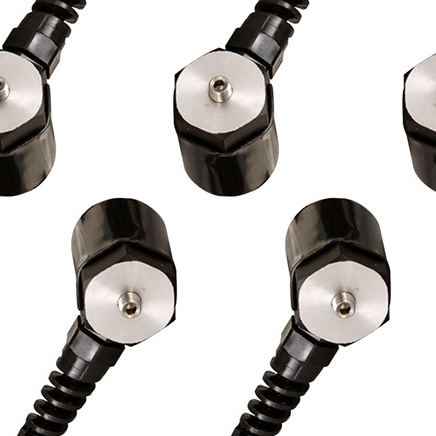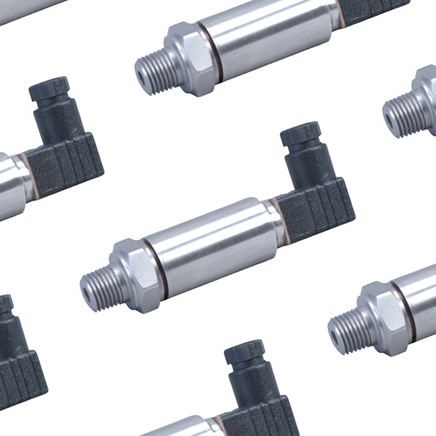‘Gas’ is an incredibly broad term. Many industries use gas, but not every industry needs to accurately measure the pressure of the system. The industries that do need to monitor gas pressure will often have complex systems where even the smallest miscalculation of pressure could lead to complete disaster.
Gas will jump at even the smallest crack in a system. This could easily lead to gas leaking out of the system and wreaking havoc in your facility. Monitoring leaks is a great way that pressure transducers can be utilized in nearly every gas application. There are several considerations that need to be encountered when choosing a pressure transducer to measure gas pressure.
Considerations
Gas is a tricky medium to deal with depending on which type of gas the pressure transducer is operating in. Air is a simple gas to deal with, while other gases — such as hydrogen — are much more difficult to work with. Two of the most important requirements to consider are corrosive gases and hydrogen embrittlement.
Corrosive Gases
Corrosion affects everything from beaches to steel benches. Most of us think of corrosive gases damaging metals and expensive devices. However, corrosive gas can even burn and destroy human tissue, which makes this a safety issue. That is exactly why choosing the proper pressure transducer is extremely important.
Some of the most common corrosive gases are ammonia, hydrogen chloride, chlorine, and methylamine. There are many pressure transducers that can handle various corrosive gasses. However, your system should have a backup plan in place as there is always a potential for a pressure transducer to fail.
Hydrogen Embrittlement
‘Hydrogen embrittlement’ may not be a term that every engineer is familiar with. This type of corrosion mainly affects steels, and many pressure transducers are manufactured with steel. When a metal undergoes hydrogen embrittlement, the toughness and/or ductility of the metal decreases substantially. Hydrogen is absorbed by the metal in the environment it is exposed to. Your team needs to ensure that the material your pressure transducer is made of does not face the challenge of hydrogen embrittlement.
Pressure transducers can be used for a wide variety of gas applications.
Pressure Transducer Gas Application Examples
Energy Technologies
Energy technology has relied on pressure transducers to create a safe, reliable energy system for delivery to both homes and businesses across the United States. Pressure Transducers are the perfect solution for biogas, natural gas, and more. These energy sources need to measure pressure to ensure that their end product will be both safe and reliable.
Biogas production is a difficult process where consistency of the final byproduct can vary, which makes measuring all the more important. Low pressure in biogas production can make many pressure transducers unsuitable in biogas production facilities. Biogas production is also very dirty, which can clog up pressure transducers and lead to inaccurate pressure measurements. Pressure needs to be accurately measured so that the production facility can manufacture biogas that has the same consistency.
Chemical Storage Tanks
Chemical tanks often contain some of the most corrosive and toxic gases known to man. The pressure level of the chemical storage tank needs to be carefully monitored in order to maintain safety regulations. These tanks are constantly in use during production and chemical processes, which means their pressure levels are in constant flux. Finding a pressure transducer that will be able to operate reliably in this environment is a big ask for system engineers.
Pressure transducers for this type of application often are custom engineered to meet specific requirements. The standard, off-the-shelf stainless steel pressure transducer will fall apart in many chemical storage tanks. Chemical gases will rip through most pressure transducers, which is why an engineered solution must be created for the majority of chemical storage tanks.
- What is a pressure transducer?
- How do pressure transducers work?
- Pressure sensor vs transducer
- Custom pressure transducers
- Pressure transducers FAQ
- Selecting a pressure sensor
- How to specify
- Installing a pressure transducer
- Troubleshooting
- Selecing an amplifier
- Selecing a controller
- Selecing a data logger

